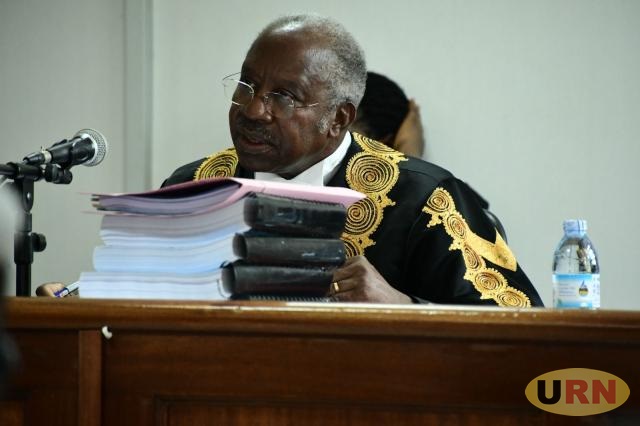
Kampala, Uganda | THE INDEPENDENT | The Constitutional Court in Kampala has dismissed a petition filed by the Non-Profit Organization Center for Health Human Rights and Development (CEHURD).
CEHURD had filed a petition challenging the legality of the Venereal Diseases Act. The Court however dismissed the petition on the ground that the law which was being challenged had already been repealed.
The Act in issue was enacted in 1977 and it provided for forced testing, examination, and treatment of persons suspected to have diseases contracted by sexual intercourse with a person already infected.
In a unanimous judgment delivered on Tuesday, a panel of five Justices comprised of Fredrick Egonda-Ntende, Catherine Bamugemereire, Irene Mulyagonja, Monica Mugenyi, and Christopher Gashirabake ruled that it is a wastage of time to determine the constitutionality of the provisions of the Venereal Diseases Act after it was repealed.
In 2019, CEHURD sued the Attorney General challenging the provisions of the Venereal Disease Act Cap 284 for contravening provisions of the 1995 Constitution.
The health rights body had argued that several Sections of the Venereal Diseases Act were inconsistent with several Articles of the constitution including 8A (1), 21(1) (a), 45, and Objectives XIV (b) and XX of the National Objectives and Directive Principles of State Policy of the Constitution.
They argued that some sections of the Venereal Diseases Act violated the right to health, and freedom from discrimination. freedom from cruel, inhumane, and degrading treatment and the right to privacy.
Court heard that the Uganda Law Reform Commission was duty-bound and therefore ought to have studied, reviewed and made recommendations for the systematic improvement, modernization and reform of the Venereal Diseases Act.
In response, the Attorney General through State Attorney, Lydia Mugisa argued that section 2 of the Venereal Diseases Act which provides for the examination of persons infected or suspected to be infected with venereal diseases is consistent with Article 8A of the Constitution which provides that Uganda shall be governed based on principles of national interest and common good enshrined in the National Objectives and Directive Principles of State Policy.
In their ruling, the justices noted that while at the time of filing the petition it raised a question for Constitutional interpretation however by the time they heard the matter and delivered the Judgment, the Act had been repealed.
“In essence, while at the time of the petition was filed it raised a question for the interpretation of the Constitution, by the time we heard the matter and delivered the judgment, the Act had been repealed. This means the matters in controversy are moot”, said the Justices.
According to the Constitutional Court, it was found that at the time the petition was filed, the Venereal Disease Act was still good law until March 24th, 2023 when the amendment to the Public Health Act 2023 came into force thereby repealing the contentious law.
No order was issued as to costs.
*****
URN
 The Independent Uganda: You get the Truth we Pay the Price
The Independent Uganda: You get the Truth we Pay the Price






For those who practice;
What I’d the purpose of contact tracing?
If one is named among contacts of “something sinister”( eh FC428) but declines to turn up, what next?
There is an assumption that all bugs are compliant with what is on the market
It is a question of time
When the bad one appears, may have to exenterate the
“leaking tube and corresponding vault”
Even then the likely Source(s) will remain at large
Hopefully the idea will regain it’s position , phrased in a manner that does not offend recreation tendencies